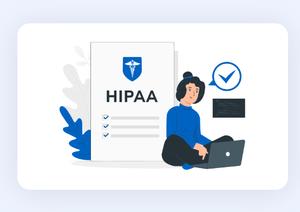Building HIPAA Compliant Software: A Comprehensive Guide
Body
Introduction
Navigating the landscape of healthcare technology requires a deep understanding of HIPAA compliance. In this guide, we explore the intricate process of building HIPAA compliant software, offering insights, best practices, and expert advice to empower developers and healthcare professionals alike.
Understanding HIPAA Compliance
The Basics of HIPAA
HIPAA, or the Health Insurance Portability and Accountability Act, sets the standard for protecting sensitive patient data. Discover the foundational principles that form the backbone of HIPAA compliance, ensuring your software aligns with these critical regulations.
Significance of Building HIPAA Compliant Software
Delve into the importance of developing software that adheres to HIPAA standards. Learn how this not only safeguards patient information but also builds trust among healthcare providers and end-users.
Key Components in Building HIPAA Compliant Software
Robust Data Encryption
Explore the world of data encryption and its pivotal role in building HIPAA compliant software. Uncover the methods and algorithms that ensure the confidentiality and integrity of patient data.
Access Controls and Authentication
Dive deep into the realm of access controls and authentication mechanisms. Understand how robust user verification processes contribute to the overall security of your software.
Regular Security Audits
Discover the significance of regular security audits in maintaining HIPAA compliance. Learn how these audits help identify vulnerabilities and ensure ongoing data protection.
Overcoming Challenges in HIPAA Compliance
Navigating Cloud Integration
Examine the challenges and solutions associated with integrating cloud services into HIPAA compliant software. Gain insights into secure cloud practices to enhance your software's capabilities.
User Training and Education
Understand the human factor in maintaining HIPAA compliance. Explore strategies for user training and education to create a culture of awareness and responsibility.
Building HIPAA Compliant Software: Common Questions Answered
How does HIPAA Compliance Impact Software Development?
HIPAA compliance significantly influences the development process. From data handling to user access, every aspect must align with stringent regulations.
Can Small Development Teams Ensure HIPAA Compliance?
Yes, small teams can achieve HIPAA compliance by implementing robust security measures, investing in education, and leveraging external expertise.
What are the Consequences of Non-Compliance?
Non-compliance can result in severe penalties, including hefty fines and legal actions. Building HIPAA compliant software is not just a choice; it's a legal necessity.
Is Open-Source Software Compatible with HIPAA Regulations?
While possible, using open-source software in a HIPAA compliant environment requires careful consideration of security measures and ongoing monitoring.
How Often Should Security Audits be Conducted?
Regular security audits should be conducted at least annually. However, more frequent audits may be necessary based on system changes or emerging threats.
What Role Does Documentation Play in HIPAA Compliance?
Thorough documentation is crucial for demonstrating compliance. Clear records of security measures and practices help in audits and legal matters.
Conclusion
Building HIPAA compliant software is a nuanced journey that demands attention to detail, commitment, and continuous improvement. By integrating the principles outlined in this guide, developers can create robust software that not only meets regulatory standards but also fosters a secure and trustworthy healthcare ecosystem.











Comments